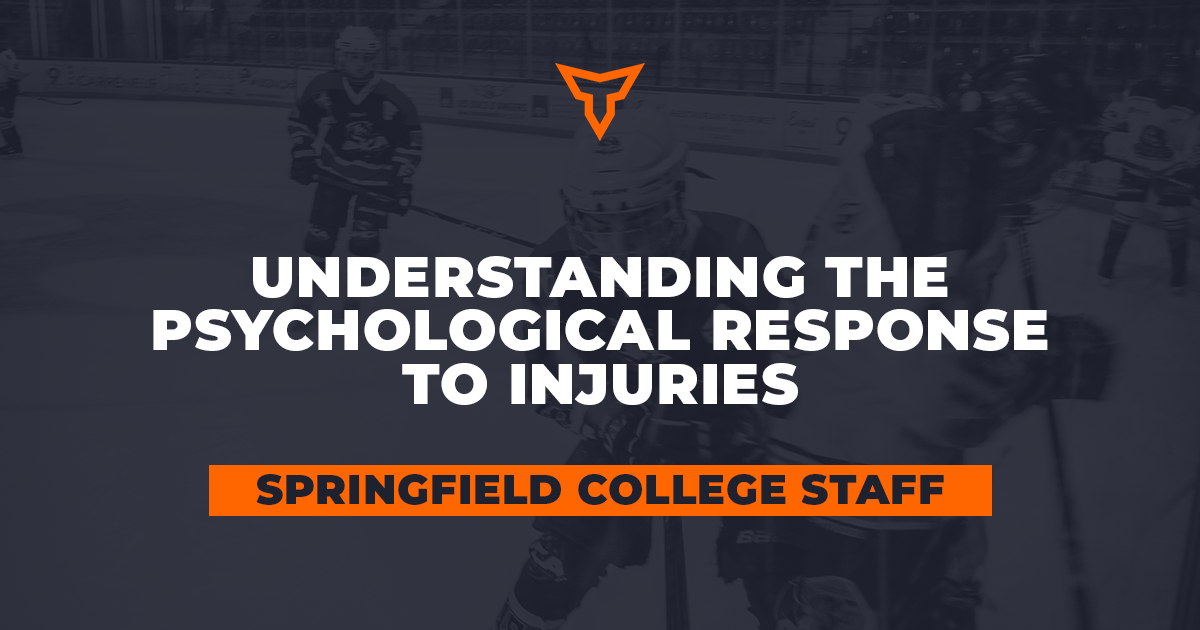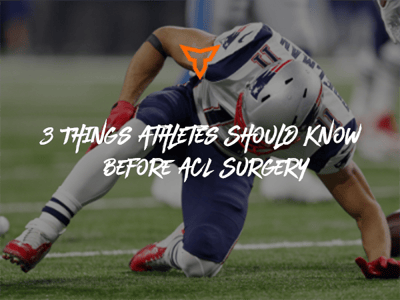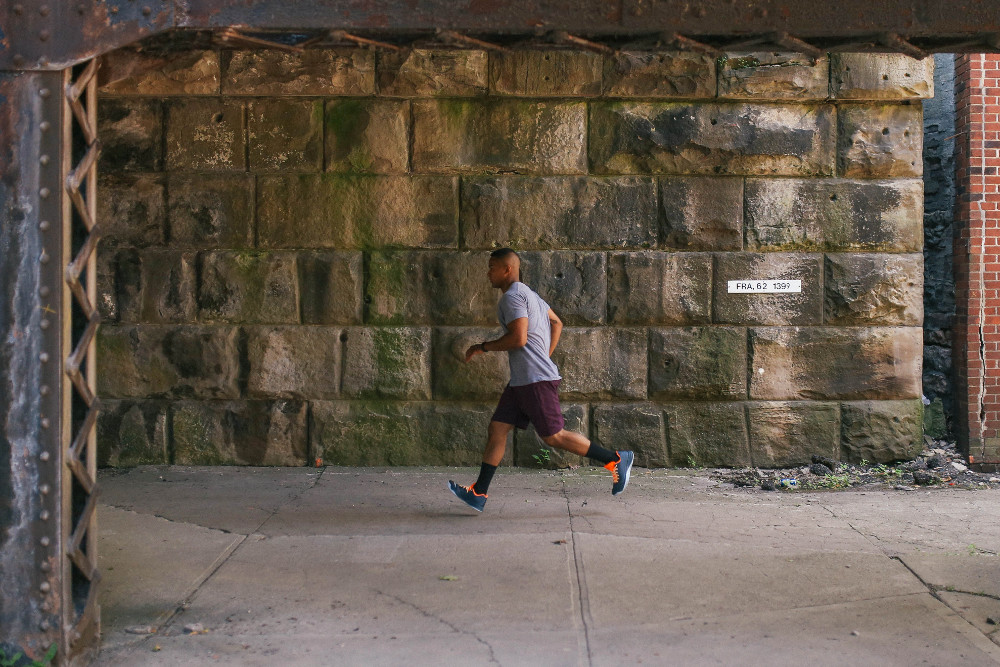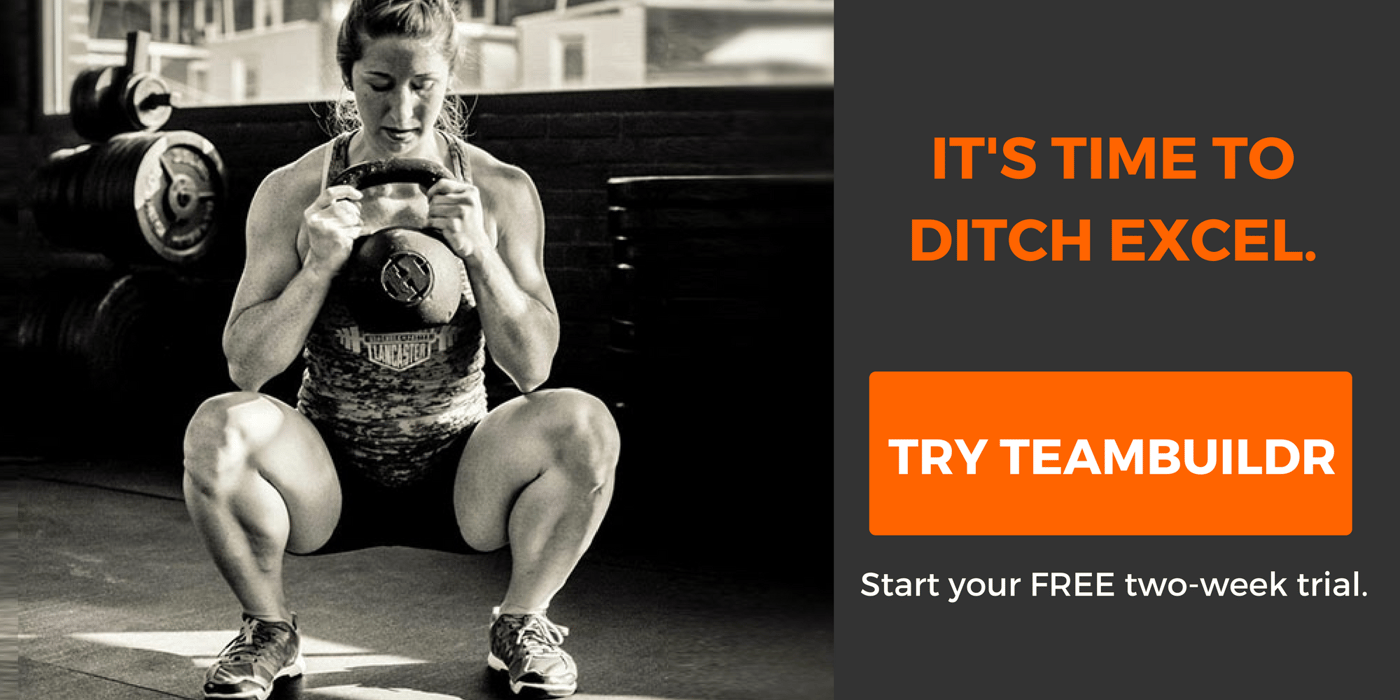Getting Back in the Game: Helping Athletes Mentally Prepare After an Injury
As a coach, trainer, parent, spectator, friend, etc. there may not be a more gut-wrenching feeling than seeing someone you truly care for in pain. Whether it’s your 2-year-old son home sick with a cold or your superstar running back not getting up after taking a big hit, it absolutely kills you to watch. In terms of athletics, you’re definitely going to have to deal with this at some point in your career – and it sucks.
Injuries, unfortunately, are a part of sports and training that cannot be 100% prevented. That’s right, I said it. We can prepare athletes for the physical demands of sport and life but there is no way to completely prevent a freak accident from happening. Reduce risk with intelligent training? Absolutely. Guarantee complete safety? Please never do that.
I am not a doctor, athletic trainer, physical therapist, surgeon, psychologist or medical professional in any way. They men and women treat injuries, that’s their job. I am a fitness professional, and you likely are as well, but I think this message is important for us. Although we can’t completely treat a patient, we can help an athlete learn how to mentally recover from an injury and even help them physically rebound from an injury.
Not to mention, we can play an equally important role in the athletic injury recovery process as the medical team by supporting an athlete mentally and emotionally as they ease their way back into the game. No matter what level of athletes or clients you work with, they trust you with their health & wellness, and that is truly a powerful gift to have.
Below are some thoughts on the mental side of helping athletes put injuries behind them and get back in the weight room, on the practice field and eventually in the game.
Mental Damage of Injuries
Before we discuss solutions, let’s look at some of the problems an injury can present from a mental aspect. I reached out to my friend, Mitch Gill who is the Head Athletic Trainer at Dacula High School in Atlanta, GA, and asked him what the number one mental roadblock is for athletes coming back from injury.
“The biggest issue most athletes face when returning from injury is confidence, or lack thereof. They often lack confidence in the ability to perform at a pre-injury level, or to do so without reinjuring,” -Mitch Gill
A lack of confidence is the catalyst for a wildfire of other mental obstacles an athlete may need to overcome. “It is important to regrain confidence back into the athlete because a timid athlete often ends up a reinjured athlete,” Gill continued.
This could cause an athlete to become timid in all aspects of their performance. If they aren’t confident in their ability or the healing process, they won’t want to test the waters with weight training, practicing or returning to the game. This can apply to every injury, from a sprained ankle to major surgery.
Another pillar that could crumble due to the mental damages of an injury is an athlete’s belief in “the process.” If you’re an NBA fan, you’re familiar with Joel Embiid and his struggle with injuries. His famous tagline now is “Trust the Process,” and he exudes confidence that he WILL return to the game and he WILL become one of the best big men in NBA history.
I love that about him because he understands and sees the value in the process. When an athlete stops trusting the process, they may also lose trust in their support team such as you, the coach, their medical staff or even their own ability. We must make sure we are keeping the athlete in good spirits, with realistic expectations, while they recover from whatever setback occurred.
In summary, what to look out for when it comes to mental and emotional challenges for injured athletes:
- Lack of confidence
- Athletically timid
- Lack of trust in the process
- No support systems
- Unclear expectations of recovery
Mental Preparation for Return
Still trying to focus on the mental side of things, this is where I need to disclaim that the physical preparation is a completely different article for another day. We’re just talking mindset here. We know the challenges an athlete will face, now how do we solve them?
First and foremost, we should present a clear representation of realistic outcomes for the athlete. Working with the medical team, we need to tell our players what they need to know, not what they want to hear. It’s a tough pill to swallow for both parties involved sometimes, but it’s in the best interest for everyone.
In other words, don’t try to be a hero. If a medical pro says the kid needs 6 weeks, please don’t cross that line and give the athlete false confidence of returning in 4. And, yes, this happens (blew my mind too).
Once there’s an understanding of the process, we can start to push the athlete towards trusting it. Instilling confidence physically is where we come in huge during this phase, but again, that’s very specific to the individual, their history, needs, etc. It’s too tough to generalize in an article, but I did get a solid piece of umbrella advice from Coach Gill. He mentioned,
“By putting the athlete in sport-specific positions in-line with the stages of their rehab, they are able to build their confidence and develop not only the physical but the mental preparation they need to return.”
So as coaches and trainers, it’s our job to use our expertise on physical preparation and movement to carry over into the athlete’s mental capacity.
Other things we can do? Better yet, other things ANYONE can do?
Be a friend. Be a teammate. Be a mentor. Be a coach. Just be there for that person. I’m currently returning from a surgery myself, and I can say first-hand that this has been the most helpful aspect of my recovery thus far. I’ll never forget who helped me out when I was pretty much down and out after surgery. A little support can go a long way for your athletes – especially if you work with youth athletes. Let’s not forget these are 15 year old little bundles of angst, hormones and emotional confusion – when they’re NOT injured!
Other ways we can support is to remind the athlete where they were pre-injury. Don’t let them forget what they are capable of when they work hard at something. Also, show them trackable recovery data that showcases how much progress they’ve made. Test and re-test testimonials can be powerful, use them responsibly.
In summary, we can combat mental challenges of an injury by helping athletes:
- Trust the process
- Gain confidence (physical and mental)
- Realizing they have a support system
- Showcasing progress in all forms
Getting Back in the Game
Sometimes this subject can be the elephant in the room because it’s the least glorious and gratifying aspect of sports that anyone can deal with. Rather than avoiding it, I’m hoping this can be a useful guide for coaches out there who will come face-to-face with the very real situation of an athlete being injured. Whether you’re at school, gym, hospital or self-employed, our goal is always the same – help our clients in whatever way we can.
Subscribe to our blog
Subscribe to receive the latest blog posts to your inbox every week.
Related posts

From the GA's Desk: Understanding the Psychological Response to Injuries

Key Insights for Athletes Facing ACL Surgery

